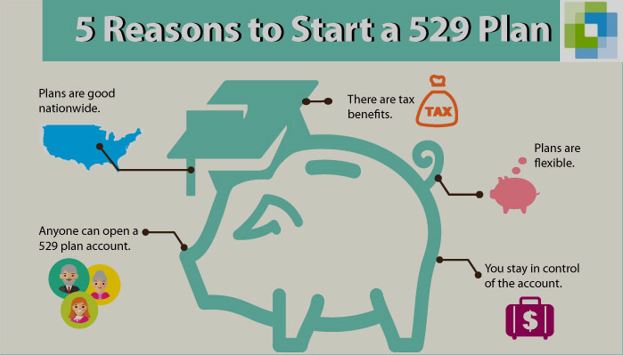Many of our clients ask us for advice on saving money for their children’s college education – a significant future expense that requires careful planning.
There are two types of savings accounts you might consider: the pre-paid tuition plan and the college savings plan; both of these plans fall under Section 529 of the IRS code.
The pre-paid tuition is an investment in a contract that promises to pay for at least part, or all, of the future tuition to a pre-designated college or University. On the other hand, the college savings plan functions much like an IRA account – a family funds the account, chooses the investments, and withdraws the funds that are needed for the college your child will select upon high school graduation. The 529 rules have changed; therefore, funds can now be used for secondary education, such as graduate degrees, and even school overseas.
The pre-paid plan may look enticing to parents who would love their child to attend their Alma mater or a college with which they have formed an emotional attachment, but it is very limiting. The plan locks a family in to one specific school (or a small group of schools) at a very early age, before most reasonable decisions on college education can be made. The pre-paid plan also cedes control over the selection of investment vehicles to the pre-designated school. In conclusion, most families choose to utilize the flexibility of the college savings plan, rather than the pre-paid plan.
The 529 college savings plan has features which deliver significant financial benefits to families:
- Contributions to the plan grow tax-free because dividends and capital gains accumulate free of Federal and State income tax.
- A family can contribute to a 529
- The 529 could be used for tuition, books, computers, or room and board fees
- The 529 could be used for art, trade, college, graduate school
- Everyone can make an annual gift up to a maximum of $15,000 ($30,000 if husband and wife elect to gift split) to each child. Thus, the contribution qualifies for the annual gift tax exclusion.
- The 529 plan also allows an individual to make an accelerated five-year lump-sum gift of $75,000 (a married couple may gift $150,000), and then wait at least five years before making another contribution. The five-year contribution is unique to 529’s and is an excellent estate planning technique, as the funds placed into the plan are completely removed from your taxable estate.
Perhaps the greatest benefit of 529 college savings plan is its flexibility. A parent may apply funds to finance education at a college, career school, or graduate school (i.e. medical, law or business school). Many technical schools and college abroad programs are also eligible. Additionally, anyone may contribute to the college savings plan: parents, grandparents, uncles, aunts, or family friends.
The 529 college savings plan can be a central and advantageous way to execute your college savings strategy. Most analysts of higher education predict that tuition and other ancillary costs of education will continue to increase in the decades ahead. It is never too late to begin saving for education. At Schenley, we can make all of the investment selections for you and consistently re-allocate over the years.
Please visit our web site for further information, calculators, and facts, or give us a call to discuss the best options for you.

President
(412)-417-92556
info@www.schenleycapital.com
